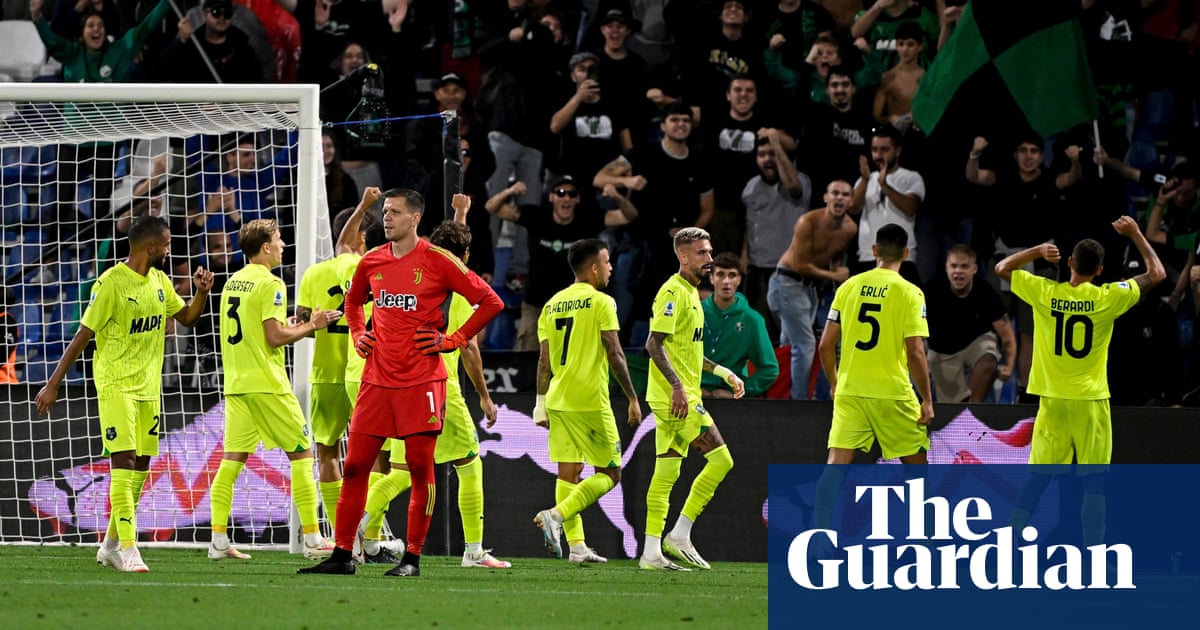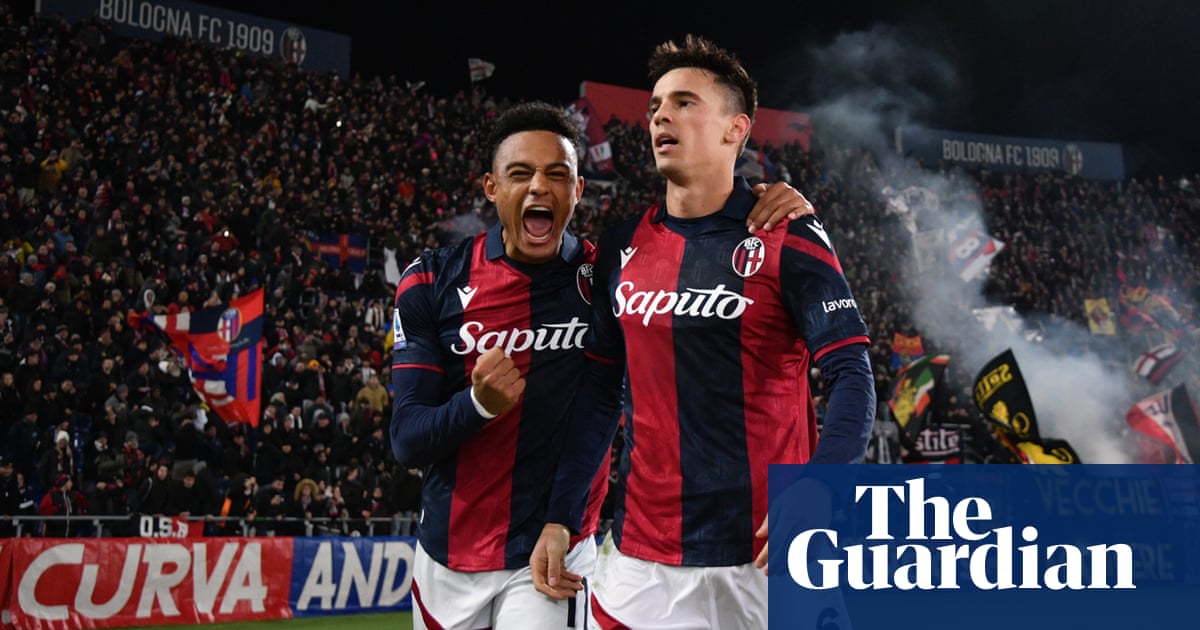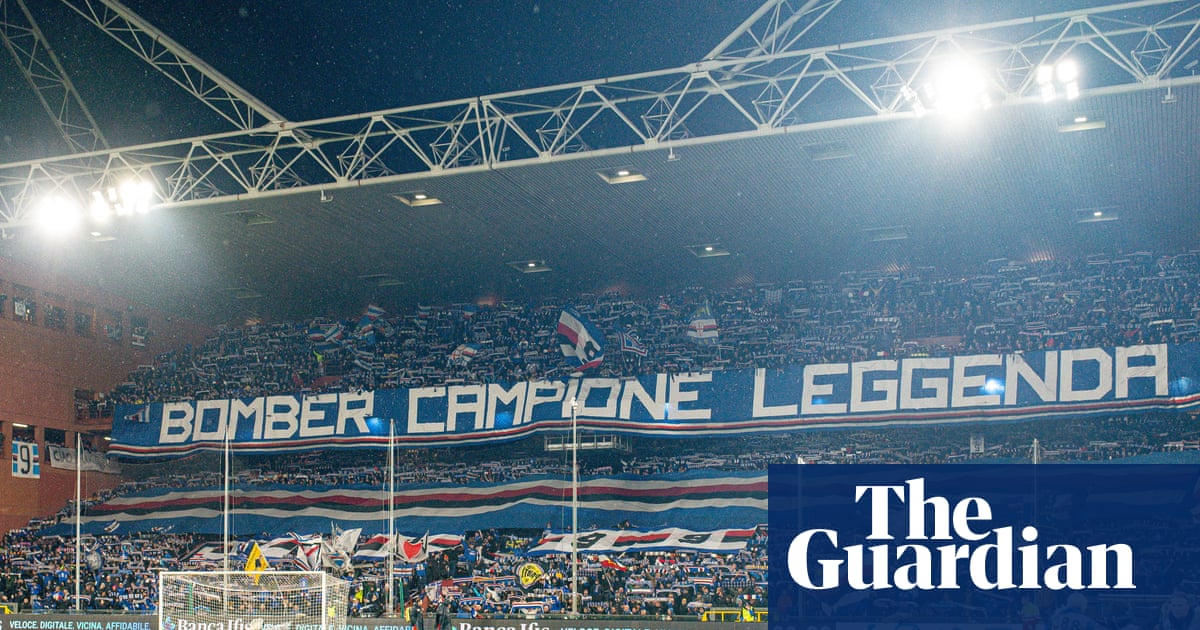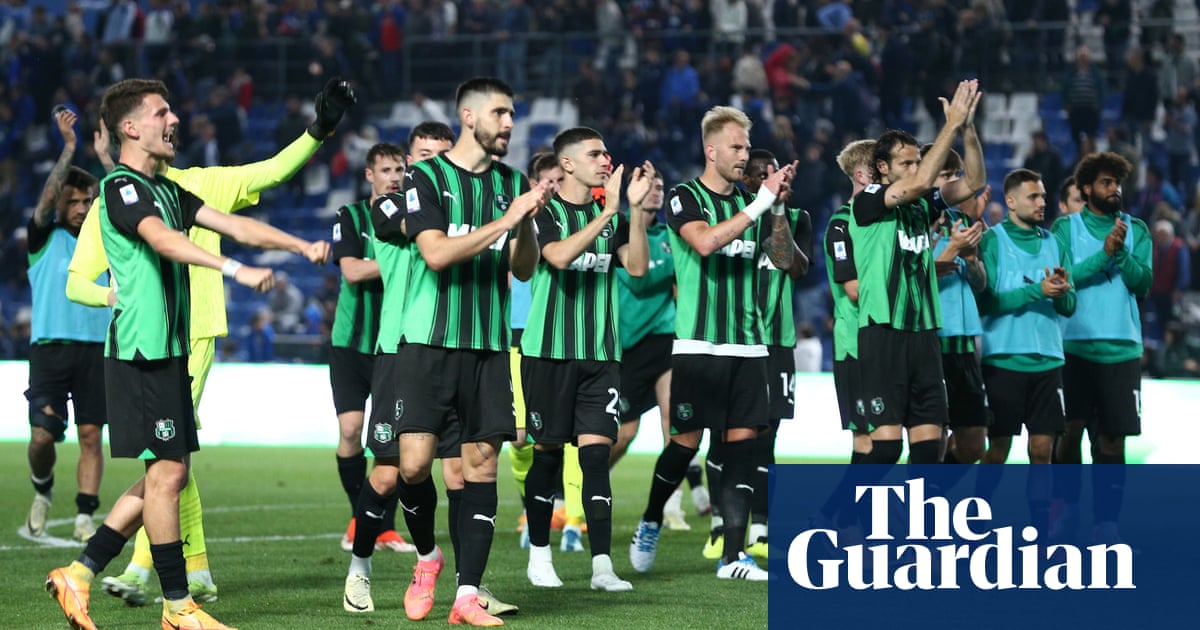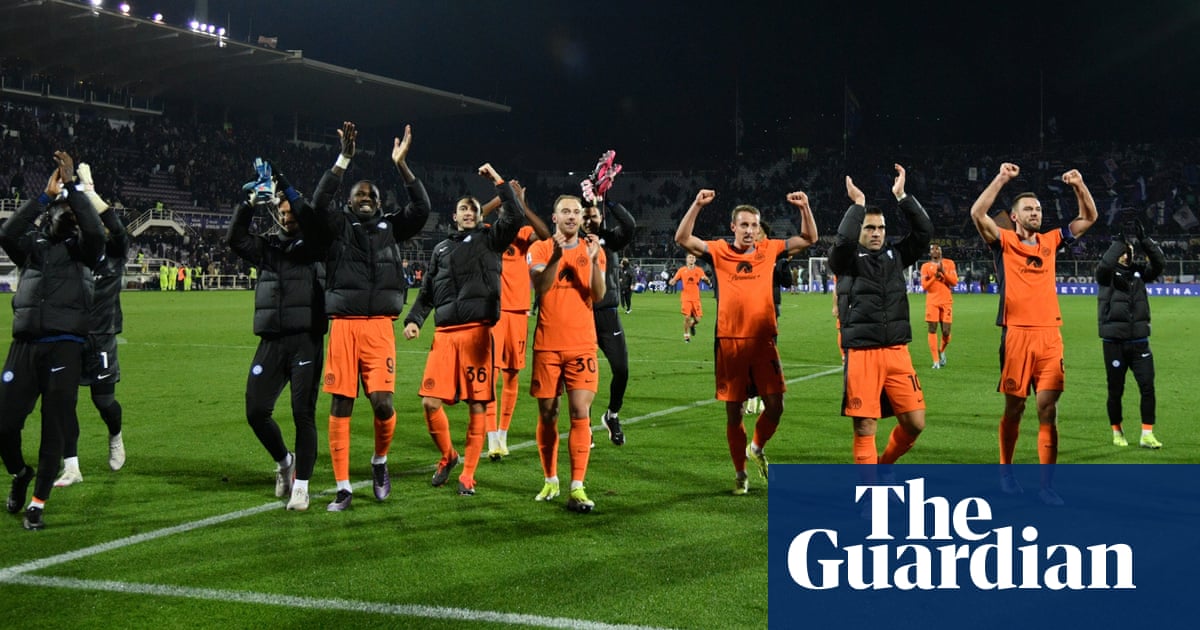
As players swapped shirts and fans began to make their way to the exits at the Stadio Diego Armando Maradona, Olivier Giroud ran a hand over his beard and listened to an interviewer from Dazn complimenting his Italian. His eyebrows raised at the question that followed: “You’re a bit like Zlatan [Ibrahimovic]: you give instructions, you encourage, you motivate your teammates. So now that he’s back, who plays?”
It was an unexpected line of enquiry on a night when Giroud had, once again, shifted the course of Serie A’s title race, scoring the goal that delivered Milan victory over Napoli just as his two strikes had sunk Inter a month before. He blew out his cheeks and shrugged before reflecting: “I don’t want to think about who is going to play. My job is also to be a big brother to the young players.”
What more could you ask of your sporting sibling than the performance Giroud turned in on Sunday? For 68 minutes, he led from the front, throwing himself into challenges even after Kalidou Koulibaly’s stud had raked a deep gouge into his left shin. By half-time he looked spent, laying flat on the turf while the rest of the players headed for the tunnel. Yet he would decide the game after the interval.
It looked a lucky deflection at first, Giroud sticking out a boot to redirect Davide Calabria’s shot inside the left-hand upright after the ball was blocked twice at a free-kick. Repeat viewings showed that it was nothing of the sort. Giroud’s subtle step into the space behind Koulibaly half a beat beforehand had positioned him to be decisive on any ball that fell to the middle of the box.
More memorable goals have been scored in this fixture. The prospect of these teams contesting a Scudetto had turned minds back to 1988, when the individual brilliance of Maradona collided with the collective authority of Arrigo Sacchi’s first Milan side. Their showdown that May remains one of the most acclaimed games in Italian football history, a 3-2 win for the Rossoneri sealed by Marco van Basten after a dazzling run from Ruud Gullit.
There is no Maradona in today’s Napoli, besides the likenesses that the club have been printing on to their absurdly long line of replica shirts. It is hard to imagine a Milan team that finished bottom of its Champions League group conquering Europe twice in the next two years, as Sacchi’s team went on to do.
Yet this has been one of the most compelling title races for many seasons. Napoli and Milan started the weekend level in first place. By the time they kicked off, Inter, had thumped Salernitana to move ahead of them. Even Juventus had temporarily closed back within four points on the back of a 14-game unbeaten run.
Napoli’s manager, Luciano Spalletti, further amplified the moment, stating that his team stood at a crossroads, with a chance to either become “immortal” or be forever forgotten. Not before or since Maradona have the Partenopei been champions of Italy.
There is a feeling of ‘now or never’ for a team who finished second with a club-record 91 points under Maurizio Sarri in 2018. Lorenzo Insigne overtook Maradona in the club’s scoring charts this February but will leave to join Toronto FC in June. Dries Mertens, now 34, would like to prolong his stay but no extension has yet been agreed for his contract beyond this summer.
Napoli have introduced fresh talent during the intervening seasons, too, and there can be a bright future built around players such as Fabián Ruiz and the club-record signing Victor Osimhen. Still, theirs is a different scenario to that of Milan, three years into a rejuvenation project under Stefano Pioli. His pre-game remarks set the stage very differently, downplaying the importance of any one game and stressing the focus should always be on overall progress.
Perhaps that framing helped his team, reducing any pressure they might have felt. Or maybe he just got his tactics right. Pioli swapped his usual 4-2-3-1 for a 4-3-3 that allowed Milan to go man-for-man across the midfield, Franck Kessié and Ismaël Bennacer pressing high on to Fabián Ruiz and Stanislav Lobotka, while Sandro Tonali sat deeper to cut off the supply to Piotr Zielinski in the No 10 role.
Napoli had more of the ball, but the visitors’ aggression pushed their centre of gravity far backwards from the areas where they prefer to operate. The result was a first half of few chances, though both teams might have had a penalty: Bennacer bumped to the ground by Kalidou Koulibaly before Osimhen had his heel kicked by Fikayo Tomori.
Either decision could have been given, but neither was. Instead, it was left to Giroud to break the deadlock in the 47th minute. The game opened up as Napoli pursued an equaliser, leaving Milan spaces to attack behind. It was the visitors who came closest to scoring again, Alexis Saelemaekers thwarted by David Ospina after going clean through in injury time.
It finished 1-0: a landmark result. This was Napoli’s first defeat of 2022, and the first time Pioli had beaten Spalletti in 12 attempts. He had played down that narrative, too, before kick-off, insisting it would “happen sooner or later”. “I would prefer later,” joked Spalletti in response.
Above all, though, this night belonged to Giroud. Perhaps Milan’s whole title bid does. The Frenchman has still only scored eight Serie A goals yet three of those have sufficed to win head-to-heads with direct Scudetto rivals Inter and Napoli in the past month. He also struck the opener in a win over Roma in January and twice in the Coppa Italia quarter-final against Lazio.
He has not yet broken the supposed curse of Milan’s No 9 shirt, as it remains true that no player has hit double figures in Serie A while wearing that number since Pippo Inzaghi. Yet there is no question that he has been a defining influence on his team’s season.
At full-time on Sunday, Pioli recalled his first contact with Giroud, a video call last summer in which he said he was quickly convinced of the value that could be brought by adding a World Cup and Champions League winner to his team. “It’s important to have players with charisma and personality,” he said. “Especially for a young group like ours.”
A role model can be useful to have around, when you’re trying to teach kids how to carry themselves and get their work done. Sometimes, though, the best thing about having a big brother is when they can just do the jobs that you might not have managed on your own.








